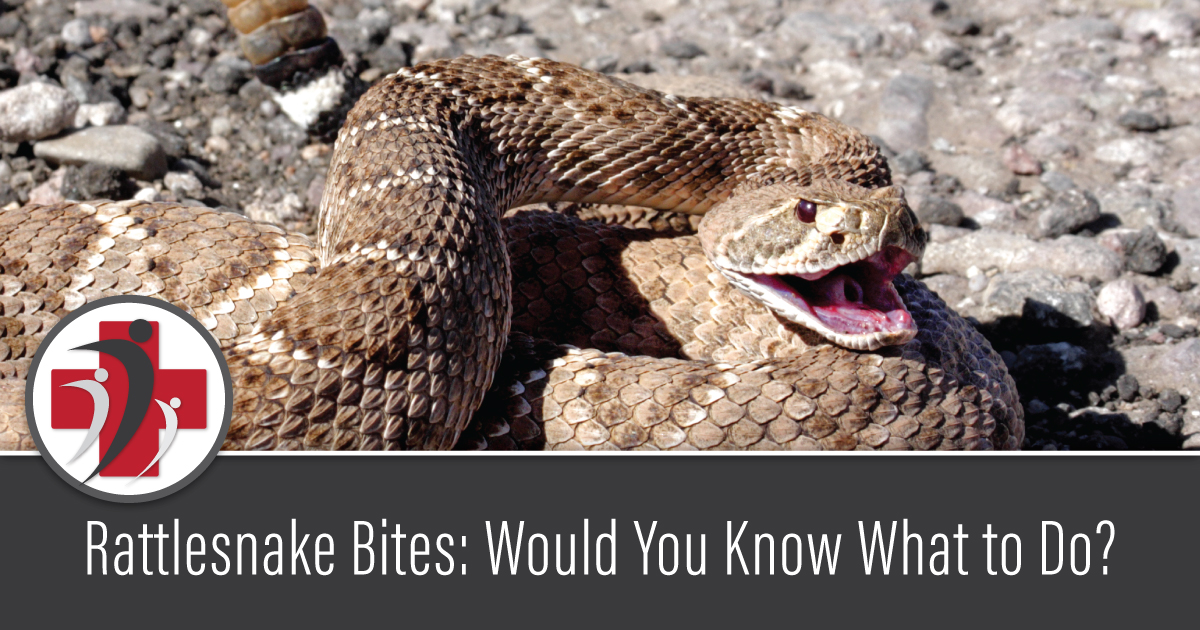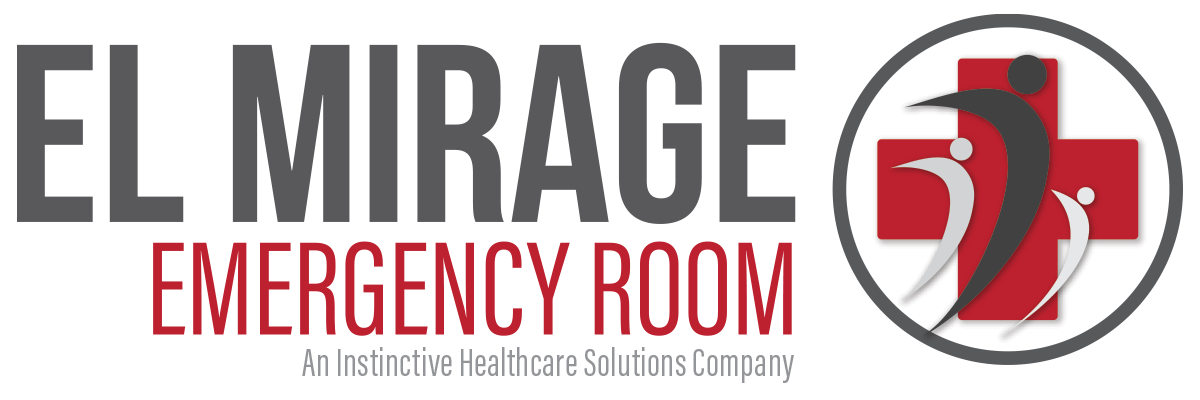Rattlesnake Bites: Would You Know What to Do?

The weather is warming up in Arizona, and you’re not the only one venturing out to enjoy the sun. The period of April through October is prime rattlesnake season, meaning you’re more likely to come across one of these dangerous reptiles. Sharing outdoor spaces with rattlesnakes may be a small price to pay for enjoying Arizona’s gorgeous landscapes, but snakebites are a real and dangerous threat. Arizona poison centers receive about 200 rattlesnake bite reports per year, and it’s estimated that an additional 100-150 unreported rattlesnake bites occur. Additionally, in a study completed by the National Institute of Health to help promote rattlesnake safety and prevention, it was found that the majority of rattlesnake encounters over the last 25 years occurred with men (nearly 70%), in the evening (49%), during the summer months (41.9%), and close to home (38.2%).
If you or someone else were to receive a rattlesnake bite, would you know what to do and how to treat the affected area during the time before emergency medical care is received?
Here are the steps you should follow in the event of a rattlesnake bite in El Mirage:
-
Move away
Get yourself and others far away from the snake. Don’t try to catch the snake, but try and remember the approximate size, shape, markings, and coloring, or take a picture from a safe distance. This can help the medical staff make decisions about your treatment.
-
Get help right away
Call 9-1-1 or travel immediately to your local emergency medical center, such as the El Mirage emergency room.
-
Stay calm
Whether the affected person is you or someone else, it’s vital that everyone remains calm, and the victim remains still. This includes keeping driving speed to a moderate level. Increased heart rate can cause the venom to travel more quickly throughout the body.
-
Wash, and that’s it
Cleanse the area with soap and water if possible. Do not try to suck the poison out with your mouth, and do not cut the skin around the bite. Cover the area loosely with a clean, dry cloth.
-
Appendage dos and don’ts:
- DO remove jewelry and watches.
- DO try to keep the affected area below the heart.
- DON’T apply ice or heat.
- DON’T apply a tourniquet.
-
Water only
Avoid consuming aspirin, caffeine, or alcohol, as these can thin the blood (which is what snake venom also does).
It’s important to make sure that you, and your loved ones, are aware of how to avoid rattlesnakes. Don’t reach into holes or under rocks, or any place you can’t see. Avoid grabbing “branches” or sticks when in water, as snakes can resemble branches when swimming. And if you encounter a dead snake, its fangs can still contain venom so it’s best to steer clear.
It’s important to not let fear of rattlesnakes keep you indoors or inactive. With some education and precaution, you and your loved ones can safely enjoy our beautiful state. And as your emergency medical department in El Mirage, we’re here for any urgent medical situations that may occur, including snakebites in Arizona. We’re open 24 hours a day, 7 days a week, and will provide efficient and effective care for you and your family.
Related Posts

Resolution into Habit: How to make it stick.
As the New Year begins to settle in, many people have started to invest time…

New Year’s Resolutions
As the holiday season winds down and the post-Christmas haze begins to fade, a new…

Holiday Heart Syndrome: What You Need to Know
The holiday season is filled with celebrations, special meals, and moments of connection—but for some…
